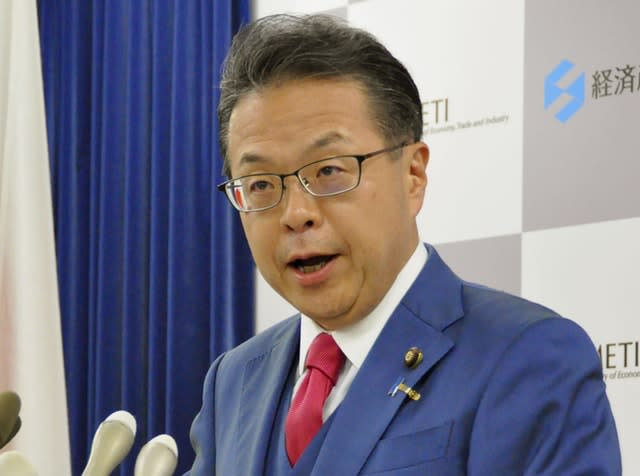South Korea vows retaliation after Japan ends preferential trade status
Japan has approved the removal of South Korea from a list of countries with preferential trade status.
The move has triggered anger and threat of retaliation from Seoul and fuelled antagonism over earlier export controls and the issue of compensation for wartime Korean labourers.
The decision expanding controls over exports of sensitive materials takes effect on August 28.
It follows an earlier requirement that Japanese exporters to South Korea be approved on a case-by-case basis for three materials used in semiconductors, smartphones and other hi-tech devices — South Korea’s key exports.

Japan’s trade minister Hiroshige Seko said the decision was needed to “appropriately carry out export controls for national security purposes” and was based on South Korea’s “insufficient” export controls.
In addition to escalating tensions between the Asian neighbours, the move will ripple across the hi-tech sector, further affecting supply chains already rattled by US-China trade tensions.
The loss of preferential trade status will apply to dozens more products on a list that potentially could be converted to weapons. That is in addition to more than 200 other items requiring individual inspection for exports to all countries.
Ending South Korea’s “white country” status would also mean Japan could limit exports of any product on national security grounds.
South Korea’s President Moon Jae-in went into an emergency cabinet meeting and vowed stern counter-measures, calling Japan’s move an attempt to contain Seoul’s economic growth and harm global supply chains.

He accused Japan of retaliating against South Korean court rulings that ordered Japanese companies to compensate Korean plaintiffs for their wartime labour.
South Korea says the Japanese trade curbs could hurt its export-dependent economy and has accused Tokyo of weaponising trade to retaliate over disputes stemming from wartime history.
Tokyo’s export measures since early July have already triggered angry protests and boycotts from South Korea.
Mr Seko said: “We have no intention whatsoever to affect relations between Japan and South Korea, and it’s not meant to be retaliation on something to begin with. I hope South Korea understands that this is not an export ban.”
Japan, South Korea and the US will hold three-way foreign ministers’ talks later on Friday on the sidelines of the Association of Southeast Asian Nations (Asean) in Bangkok.
The tighter approval for the export of the three items — fluorinated polyimides, photo resists and hydrogen fluoride — has had a limited impact, analysts say, because South Korean companies have at least three-month stockpiles of the computer chips and displays that would be affected, amid slowing demand and worries over US-China trade tensions.
But additional controls add to uncertainty for Korean manufacturers including SK Hynix and Samsung that rely heavily on Japanese suppliers.

 Yahoo News
Yahoo News 
